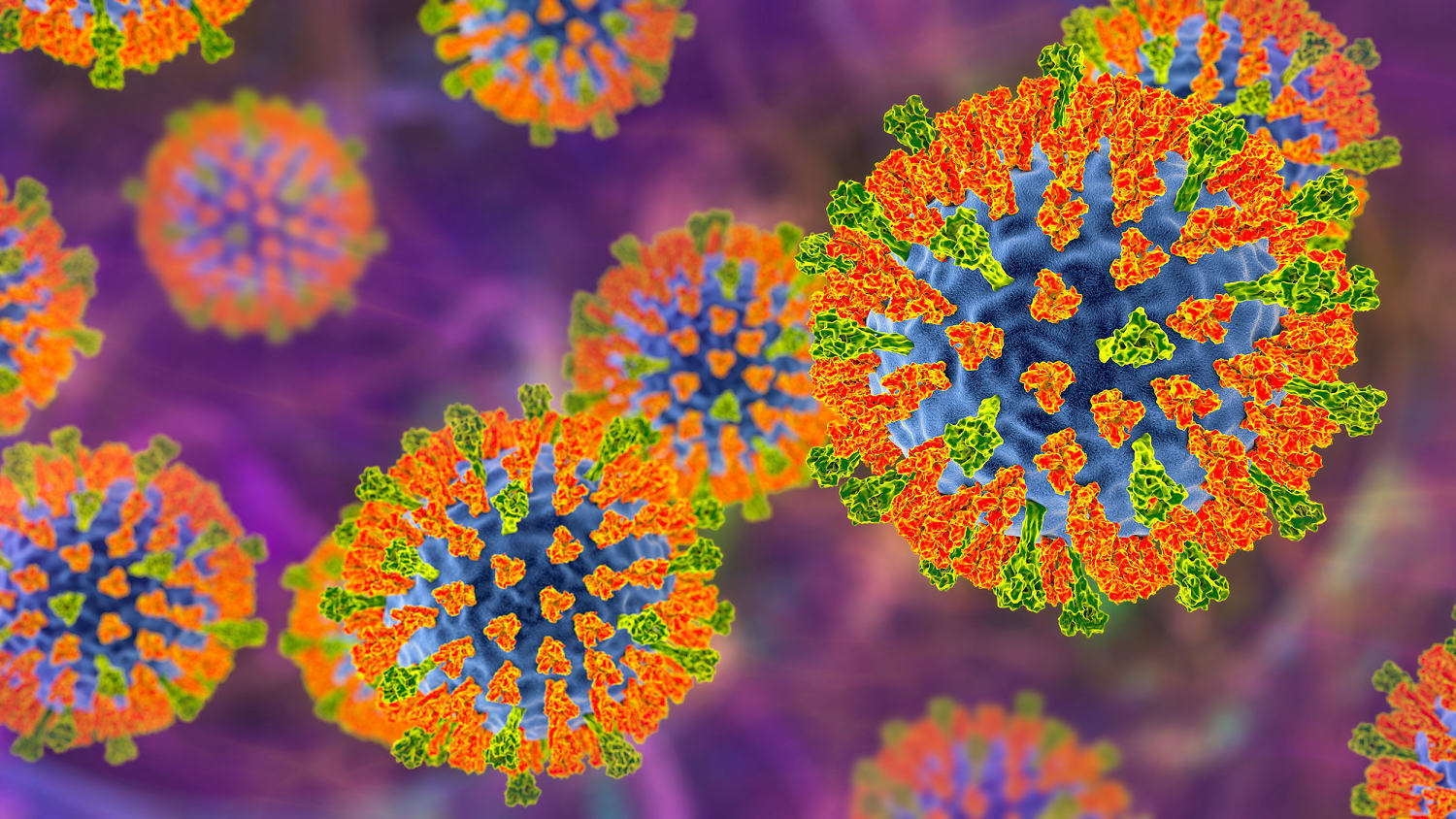Questioning the risks and benefits of vaccines isn’t spreading misinformation

At the heart of the COVID pandemic, I interviewed Heidi Larson, founding director of the Vaccine Confidence Project, and she surprised me. It was during a time of COVID vaccine mandates when it was clear to me that the vaccines were saving lives even if they didn’t often prevent spread and shouldn’t be mandated.
I expected her to climb on the “misinformation” bandwagon but she said she didn’t like the term at all. The way to discuss a vaccine, she said, is to ask your patient how they feel about it and go from there, addressing patient concerns and developing a risk-benefit analysis to discuss.
I couldn’t agree more. And one of the first questions I always ask is what a patient’s reaction has been to previous vaccines. I have found that there is a pattern, that those who don’t tolerate one vaccine may not tolerate another.
In fact, a friend of mine who is a physician believes that there are so-called vaccine families who may be more susceptible to vaccine injuries by far than the general public. She believes that a close relative of hers may have gotten a neurological disease following a vaccine.
We should be using advances in genetic testing and artificial intelligence to help us ferret out who is most at risk for significant side effects from a particular vaccine. This would only help me as a physician to have the Heidi Larson-type of discussion in my doctor’s office.
I could discuss risks and benefits in a more sophisticated way if I better understood a patient's risk versus their protection against a given virus or bacteria.
Consider that none other than Dr. Kizzmekia Corbett-Helair, co-developer of the COVID-19 vaccine and renowned viral immunologist at the Harvard School of Public Health, wrote an opinion piece last June in STAT saying that more empathy is needed for those who report experiencing long-term side effects from the COVID vaccines.
“People who speak out about how they feel after getting a vaccine should not be dismissed or assumed to be anti-vaxxers,” she wrote. “For starters, they deserve empathy from their doctors and other health care providers, as well as from those who set and drive vaccine policy.”
Don’t get me wrong, I believe strongly that vaccine use in the 20th and 21st centuries has cut down dramatically on death and disease and has saved hundreds of millions of lives, beginning with the smallpox vaccine which wiped the disease off the planet and on to the polio and measles vaccines which have also had enormous impact in terms of lives saved.
Even less impactful vaccines, such as flu or COVID vaccines, still decrease severity and visits to urgent care and hospitalizations by hundreds of thousands of cases in the U.S. per year.
Vaccines are not just a matter of personal choice, they are also powerful public health tools, where the goal is to protect a community from a pathogen including those who are unable to take a certain kind of vaccine (live virus) or are unable to mount a protective response.
But vaccines have side effects, and we need to consider who is more prone to these side effects and who isn’t. Neither safety nor efficacy is one size fits all. And now we finally have the technology available to help us start to tell the difference.
I have written about the 1976 swine flu fiasco, when 40 million people received a hastily made flu vaccine for a virus that never took hold and about 1 in 100,000 recipients appeared to acquire Guillain-Barré syndrome as a result.
This tragedy shook public confidence in vaccines and led to far more study and transparency and a vaccine registry for reporting potential vaccine injury. But an important question that was never addressed (because the technology didn't exist at the time) is why some people got GBS while others didn't.
The COVID vaccines are very different because the virus was killing millions and a vaccine (to save millions) was desperately needed. However, the way that the vaccine was pushed and mandated also helped cause an erosion of confidence in public health.
Robert F. Kennedy Jr. is a disrupter and a reformer. But he needs to respect the effectiveness of the amazing vaccines we have. At the same time, pushing for even more transparency and study is by no means a bad thing, provided that public confidence in one of our greatest public health tools is restored rather than further eroded.
Marc Siegel, M.D., is a professor of medicine and medical director of Doctor Radio at NYU Langone Health. He is a Fox News medical correspondent and author of “COVID; The Politics of Fear and the Power of Science.”
-

What to know about vaccine booster shots as measles spreads in Texas
In Texas, at least 90 cases of measles have been reported in recent weeks across the northwest part of that state.NBC News - 3d -

John Oliver on Facebook: ‘An absolute sewer of hatred and misinformation’
The Last Week Tonight host looked at content moderation and how Mark Zuckerberg has bent to Trump’s will. John Oliver took aim at Mark Zuckerberg and the world of content moderation in this ...The Guardian - 1d -

If Banning Explicit Deepfakes Isn’t the Answer, What Is?
We need to change behavior, not just legislate on technology.Inc. - 5d -

Bernie Sanders Isn’t Giving Up His Fight
The senator worries that too many Democrats remain reluctant to shake up the system. But he does not regret defending Joseph R. Biden Jr. until the very end.The New York Times - 3d -

Scientists Describe Rare Syndrome Following Covid Vaccinations
In a small study, patients with the syndrome were more likely to experience reactivation of Epstein-Barr virus and high levels of a coronavirus protein.The New York Times - 4d -

VA secretary: 'We're not cutting benefits'
Veterans Affairs (VA) Secretary Doug Collins defended the Trump administration's recent layoffs at the department, arguing Thursday that cuts have not been made to "critical health care" or other ...The Hill - 4d -

An Effective Treatment for Opioid Addiction Exists. Why Isn’t It Used More?
A drug called buprenorphine may be the best tool doctors have to fight the fentanyl crisis. Why hasn’t it been more widely adopted?The New York Times - 6d -

No, Even the Best Wi-Fi Extender Isn’t Worth Your Time (2025)
We spent hours testing Wi-Fi extenders, but they failed to impress. There are better ways to improve your internet coverage.Wired - 5h -

Your Questions Answered: War In Ukraine
Your questions answered on America's relationship with Ukraine - and the rest of Europe.BBC News - 5d
More from The Hill
-

Senate Republican recovering at home after being hurt in fall
Sen. Kevin Cramer (R-N.D.) said he is recovering at home after suffering a concussion and “brain bleed” following a fall on the ice during a weekend trip home to North Dakota. “While walking on the ...The Hill - 36m -

Trump defying a court order would trigger a constitutional crisis
The administration can disagree with judicial rulings all it wants, but one thing is clear: it can’t disobey them.The Hill - 38m -

Watch live: House holds hearing on birthright citizenship, 14th Amendment
The House Judiciary Subcommittee on Constitution and Limited Government will convene a hearing Tuesday afternoon looking into the connection between the 14th Amendment and President Trump's recent ...The Hill - 40m -

Judge temporarily blocks Trump refugee ban
A federal judge on Tuesday blocked the Trump administration from suspending the U.S. refugee program, siding with resettlement groups that challenged a Day One order from the president. U.S. ...The Hill - 41m -

NYT reporter says Trump handling press like Soviet Kremlin
Peter Baker, a leading reporter at The New York Times, blasted President Trump's White House over its decision to take control of the press pool covering the president and ban the Associated Press ...The Hill - 45m
More in Politics
-

21 DOGE staffers resign, saying they refuse to 'compromise core government systems'
Twenty-one civil service employees resigned en masse Tuesday from Elon Musk's Department of Government Efficiency.NBC News - 30m -

Senate Republican recovering at home after being hurt in fall
Sen. Kevin Cramer (R-N.D.) said he is recovering at home after suffering a concussion and “brain bleed” following a fall on the ice during a weekend trip home to North Dakota. “While walking on the ...The Hill - 36m -

Trump defying a court order would trigger a constitutional crisis
The administration can disagree with judicial rulings all it wants, but one thing is clear: it can’t disobey them.The Hill - 38m -

Watch live: House holds hearing on birthright citizenship, 14th Amendment
The House Judiciary Subcommittee on Constitution and Limited Government will convene a hearing Tuesday afternoon looking into the connection between the 14th Amendment and President Trump's recent ...The Hill - 40m -

Judge temporarily blocks Trump refugee ban
A federal judge on Tuesday blocked the Trump administration from suspending the U.S. refugee program, siding with resettlement groups that challenged a Day One order from the president. U.S. ...The Hill - 41m